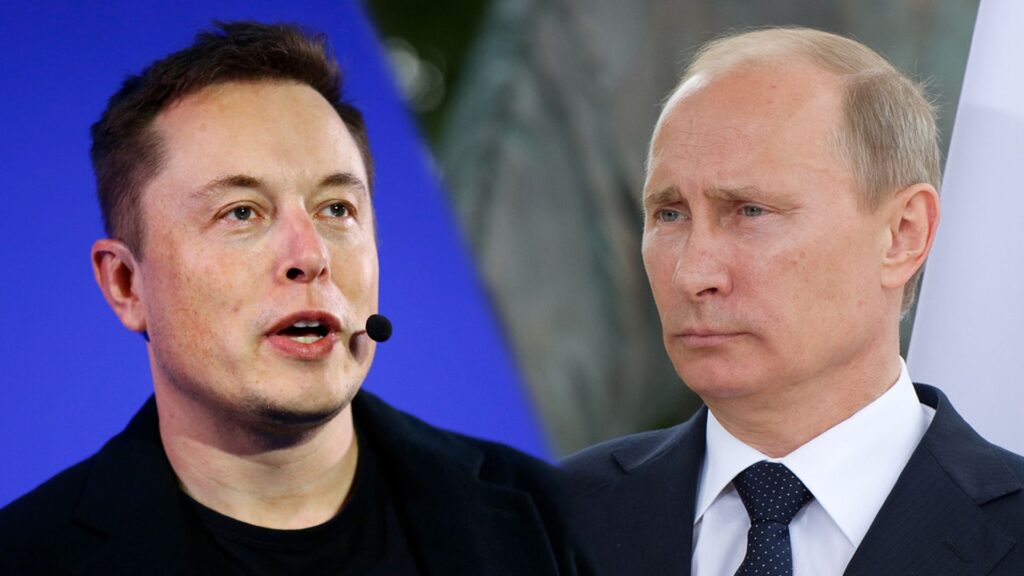From being a technopreneur, Elon Musk has progressed into a world-politics influencer and is currently involved in making decisions that transcend the boardrooms of Tesla and SpaceX. The recent report shows that Musk had been holding continuous communication with Russian President Vladimir Putin for the last two years. This shocking revelation raises so many questions about Musk’s role in international diplomacy and his influence over world affairs and how private conversations between a tech entrepreneur and a world leader could shape international relations.
The Backdrop of Elon Musk’s Relationship with Global Leaders
Global leaders seem to be no strangers to Elon Musk. He has voiced support for initiatives such as more extensive space exploration and a transition to clean energy in the world. His talk with powerful figures, which included the U.S. and Europe and has now recently included Russia, reflects his ambitions to not only be an innovator, but an influencer on the world stage. A new report will emerge to talk about what makes Elon Musk seem interested in building relationships with global leaders, further setting his wish to influence matters far beyond technological abilities.
Do read:
Celebrities Pushing the Limits of Plastic Surgery: Too Much Transformation?
Key Takeaways from the Report
The inside information and confirmed communications obtained reflect a timeline based on conversations between Musk and Putin, that dated about two years back. The exact topics or subjects of conversation are unknown, but it is said that possibly the discussion was over the shared technological interest, economic implications, and even if any collaboration would take place in space. All this when and under which circumstances bothers, as during that time, the relations between the U.S. and Russia were rather strained.
How These Conversations Impacted Global Affairs
Although discussions between Musk and Putin, now a personal chat, carry a serious weight in the political global system, his current influence and fame and encounters with political leaders such as Putin might bring about indirect changes in international relations. Undeniably, Musk is not a governmental officer; however, his exchanges of ideas with other leaders may win a few hearts, alter policy orientations, or have further ripple effects in the market, particularly considering his involvements in certain sectors such as energy and aerospace.
Global Politics: Where Elon Musk Stands
Anyone who has kept tabs on the world has probably noticed that Elon Musk is one of the most influential figures in modern technology and business. All sorts of industries have been revolutionized, and his ventures have influenced most trends-albeit sometimes negatively- from automobile giants like Tesla creating electric vehicles to internet connectivity in far-off areas. But this new revelation of Musk’s interaction with Putin points out a well-placed influence that now extends into global politics. Involvements of Musk on discussions with Putin reveal a bordering influence almost diplomatically, causing the private involvement on the side of the citizen in political dialogues, especially influential leaders within the tech industry.
Musk Foreign Interactions Controversies
This comes as no surprise-the communications of Musk and Putin have already been a pretty attractive controversy. The jury is out in public opinion. While some see Musk as the bold innovator unafraid to bridge political divides, others fear that he could be crossing lines as a private citizen that even the president should not cross. This therefore raises debates on whether tech leaders can engage in such discussions without formal diplomatic oversight. Critics argue that it might run the line between private enterprise and statecraft, thus complicating the balance of international relations.
Role of Tech Leaders in International Relations
As mentioned earlier, the conversations between Musk and Putin reveal a growing trend of tech leaders participating in diplomatic roles. Leaders like Musk, who exert enormous influence over areas such as energy, communication, and defense, are being continually positioned in situations where their views or stances shape the opinion of the people and even policy. This trend raises questions about the responsibilities thrust upon such leaders and also prompts the need to place oversight mechanisms within their international engagements. As companies such as SpaceX that operate under government contracts wade into sensitive geopolitical issues, the ethical lines begin to muddy.
What All This Means for US-Russia Relations
The larger implications of Musk’s talks with Putin stretch far beyond Musk himself into the broader expanse of US-Russia relations. As Musk is not an official agent of the US government, his close connection to tech and defense initiatives in the US may make his actions impactful. Amid these already strained U.S.-Russia relations, which bear many geopolitical grievances, these types of interactions will further add to the mess. This has raised questions within some circles: Should private discussions between CEOs and global leaders be transparent or even regulated?
How Will Future Happen with Musk’s Involvement in Diplomacy?
Now with Musk’s penetration into the political arena, it would likely be seen that his role in diplomacy and international relations will only continue to grow. Whatever the result of these meetings seems to be positive or negatively controversial, one fact stands out: that Musk has a role as a tech leader which a majority of entrepreneurs wouldn’t have. As he forges through these challenging territories, the public will certainly be monitoring whether Musk will mold the politics of business leadership in the global arena.


